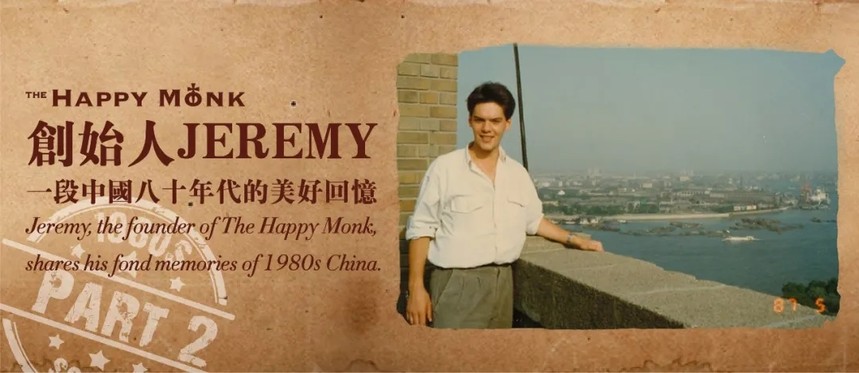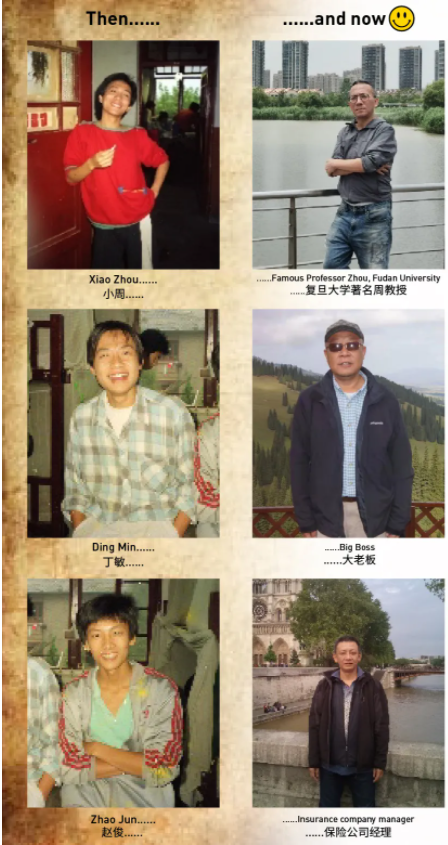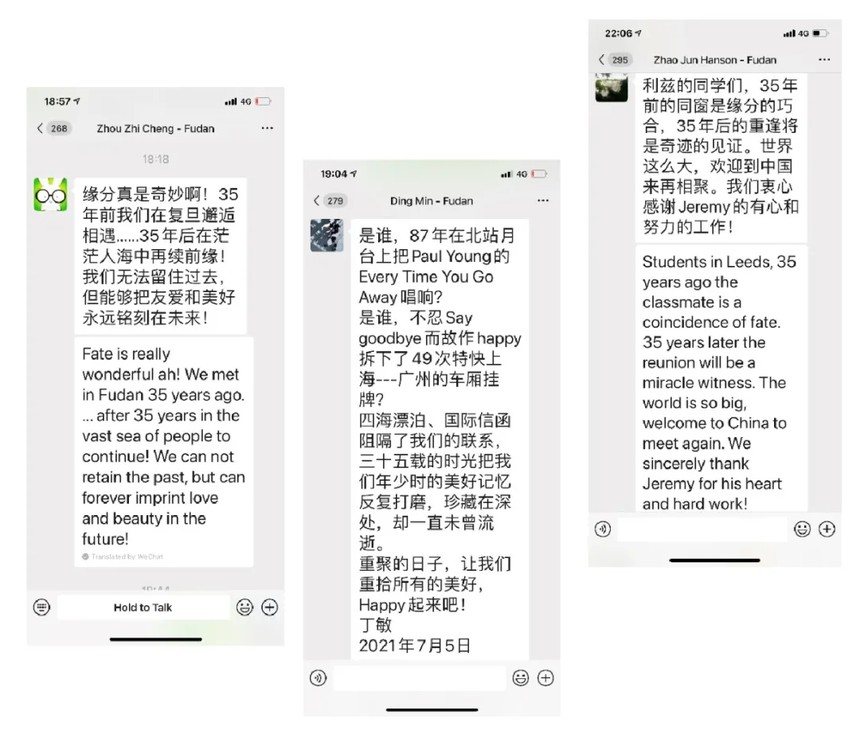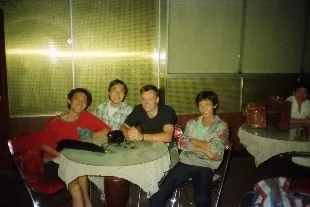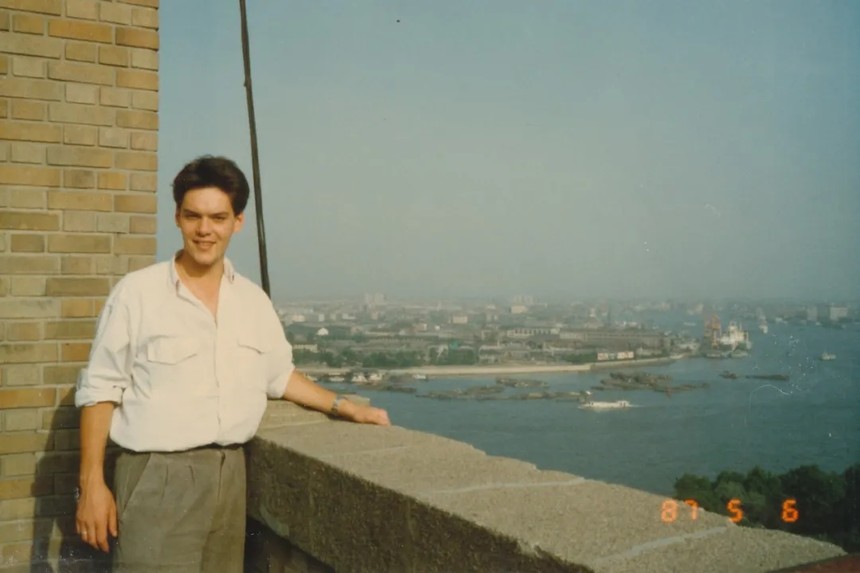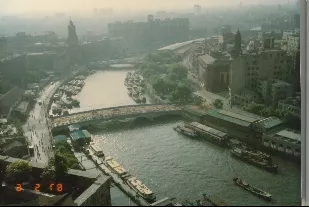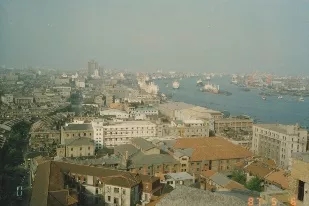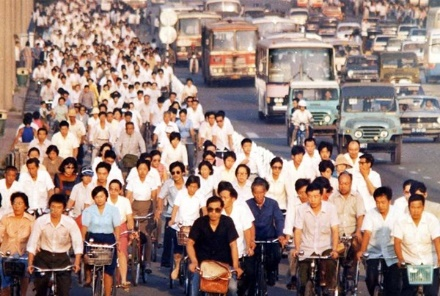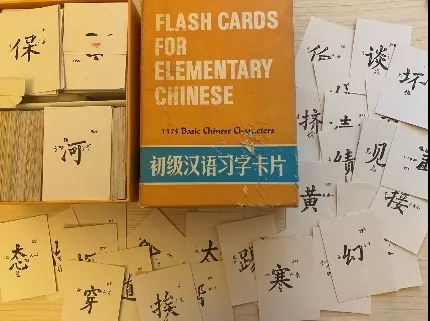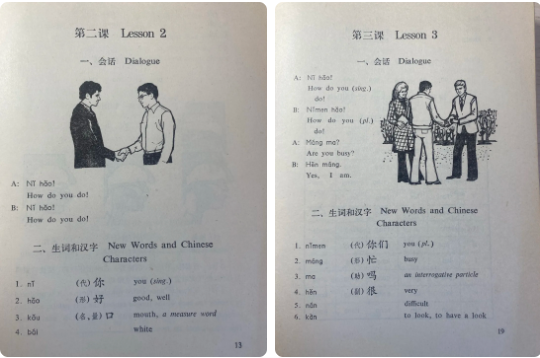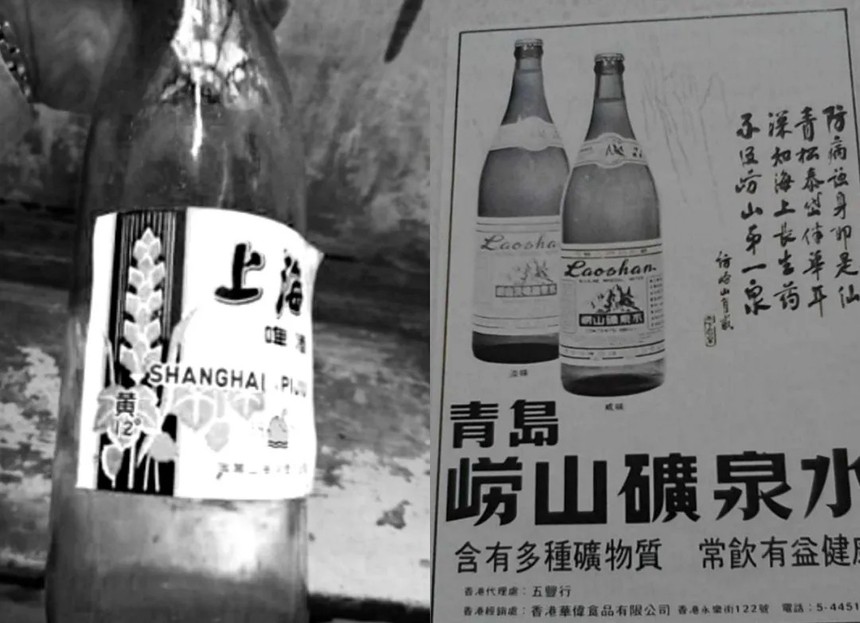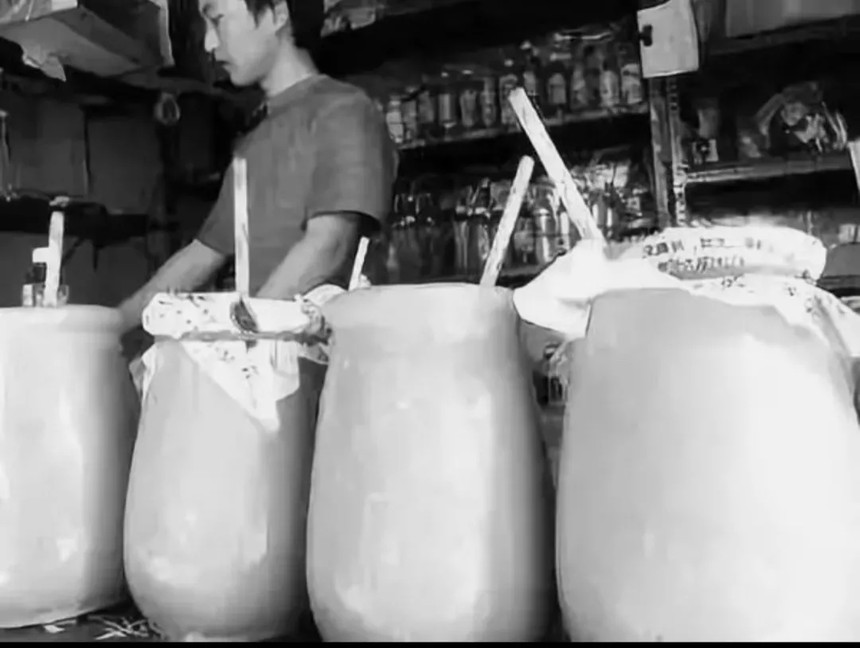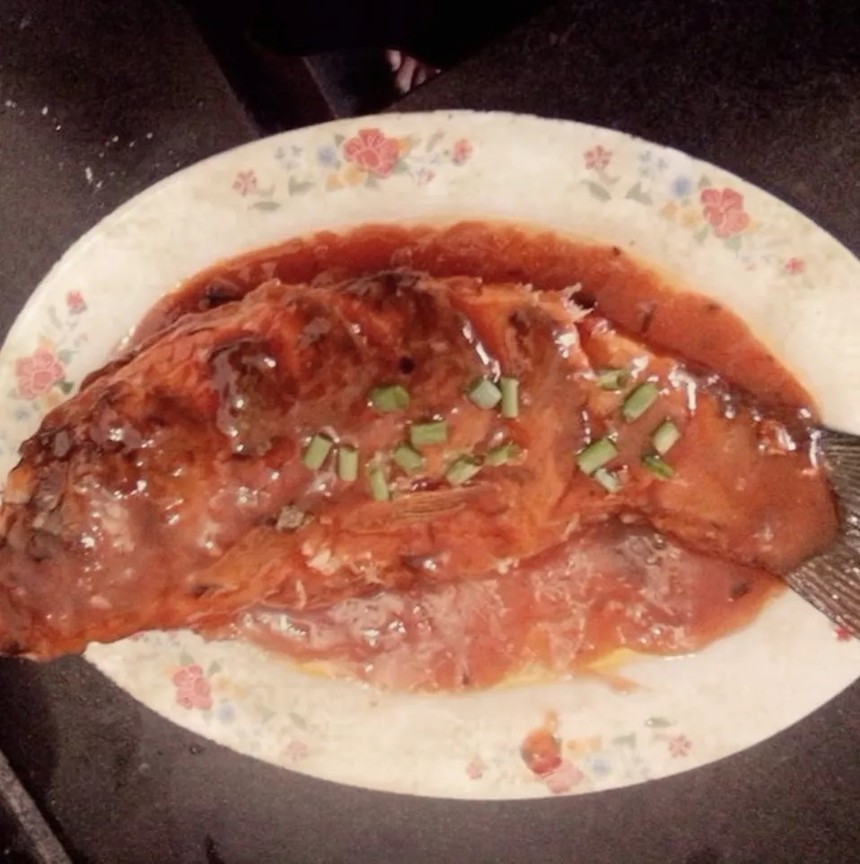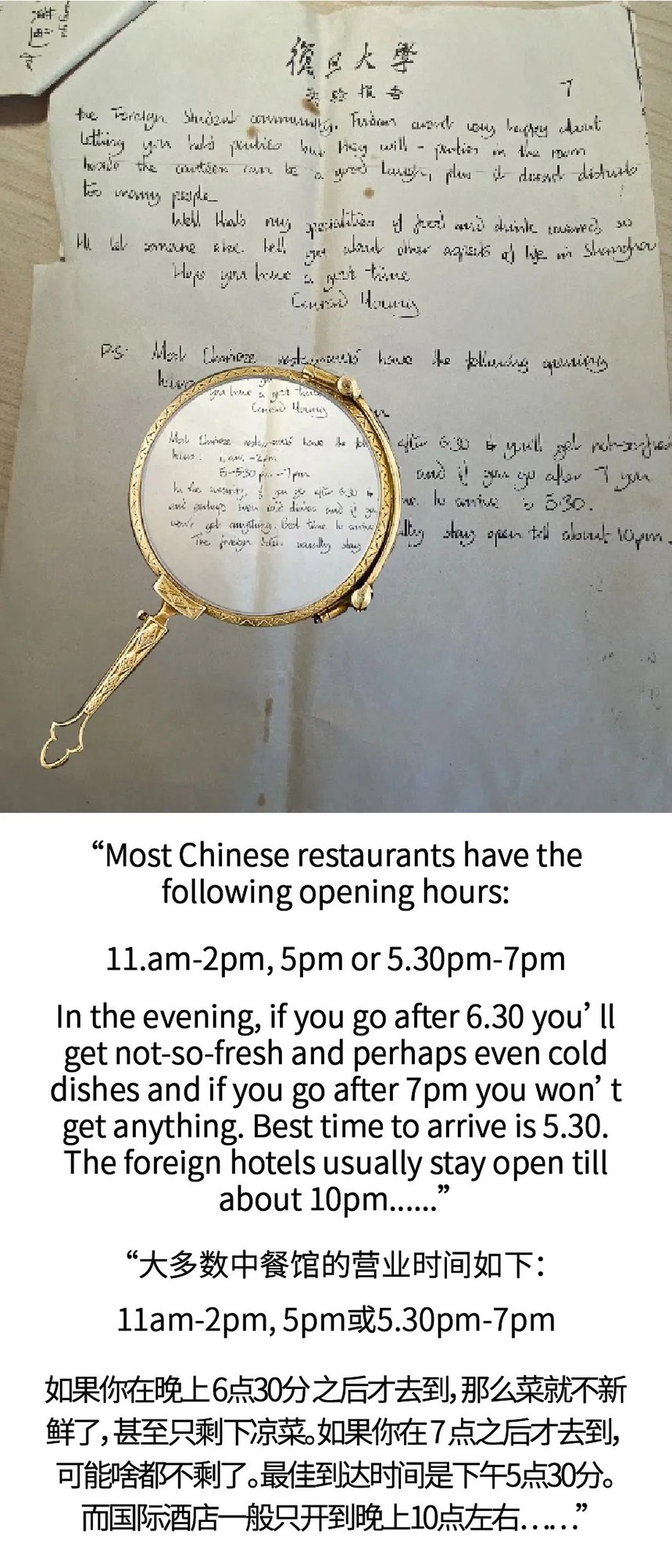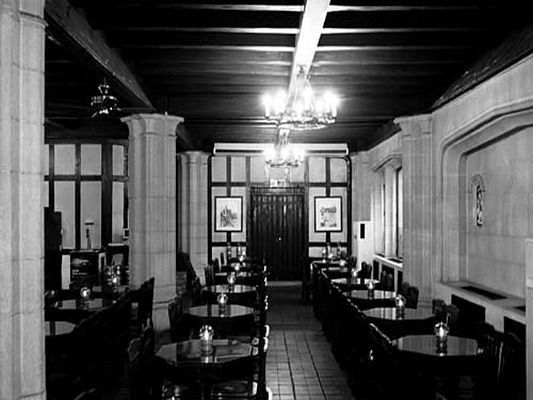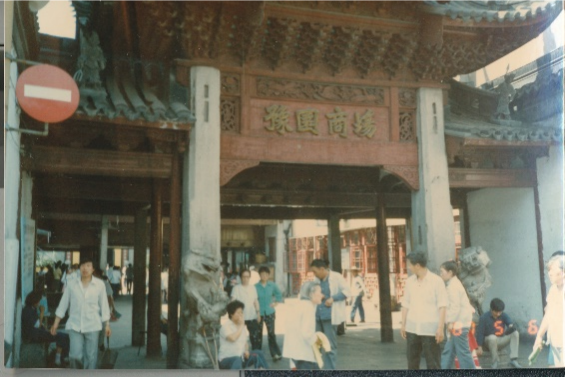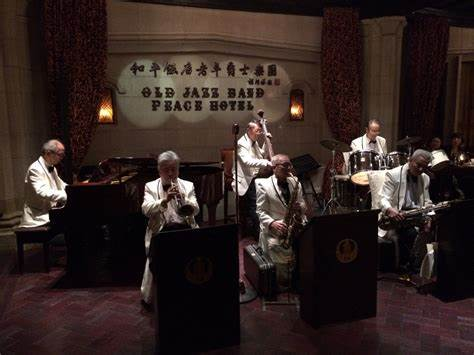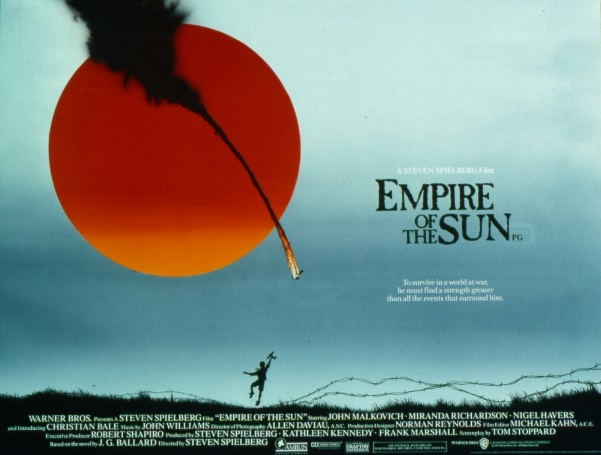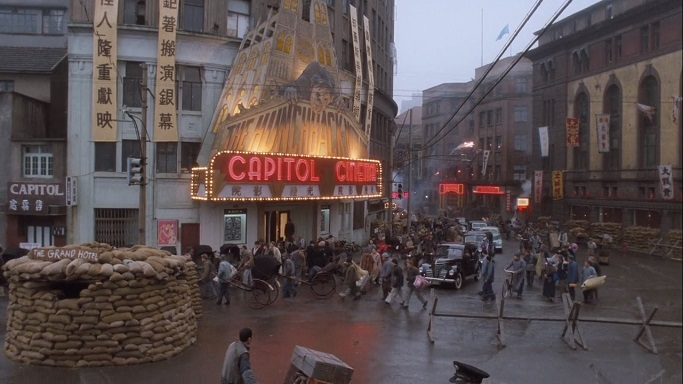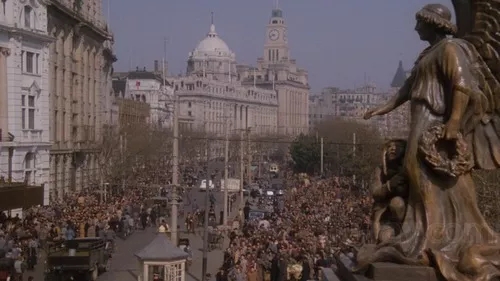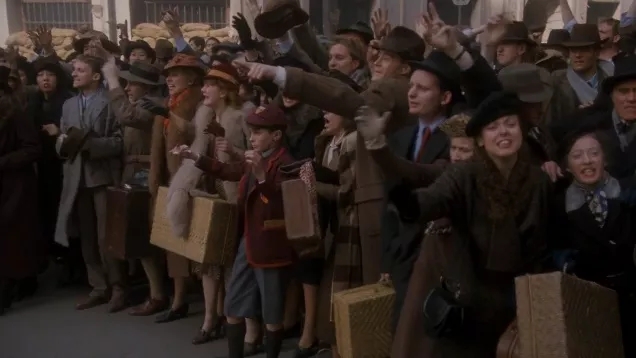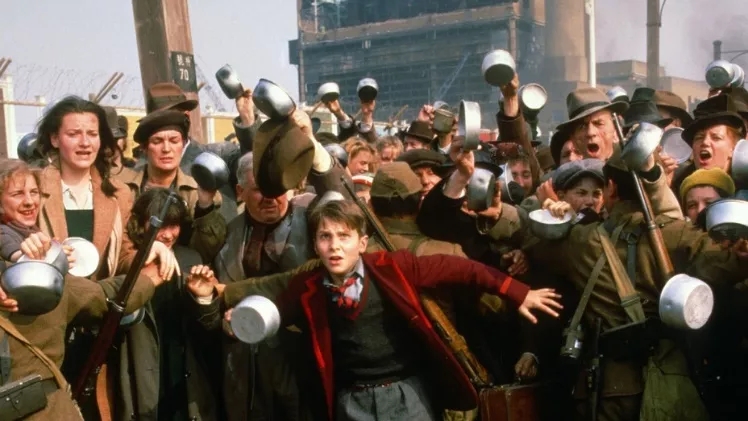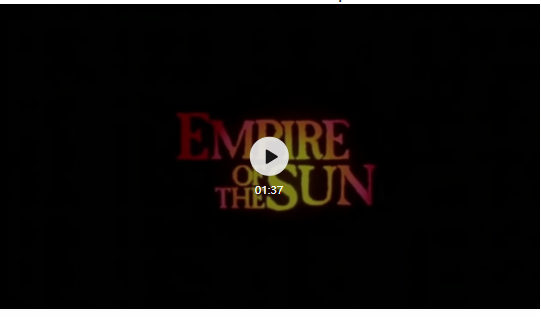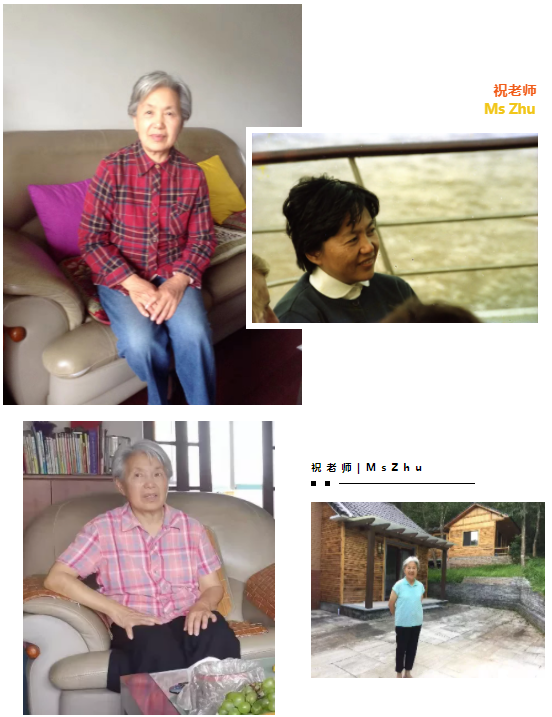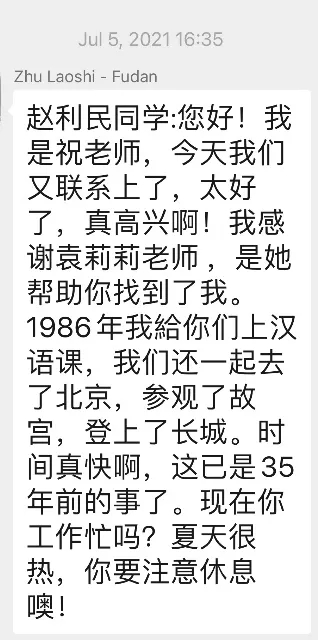|
Happy Monk 创始人Jeremy一段中国八十年代的美好回忆(二) - The Happy Monk 摩克咖啡厅
The Happy Monk 餐吧的创始人Jeremy Sargent 在他的第一篇文章中分享了上世纪80 年代他在上海留学时的美好回忆——从抵达上海的那个深夜和中国室友一起度过的学习生活,到失而复得的钱包,最后与伊丽莎白二世女王的见面。关于这些美好的回忆,Jeremy将继续分享那个特殊时期属于他的故事。 In his first post, Jeremy Sargent, Founder & Proprietor of The Happy Monk, shared vivid memories of his time as a student in Shanghai back in the 1980s. From arrival late one evening in Shanghai, his wonderful Chinese roommates, his missing wallet, and his encounter with Queen Elizabeth II. Here Jeremy continues his stories of that special time. 35年以后我们终于重遇了! Reunited after 35 years! 在开始讲述我的故事之前,先说说我的中国室友。上一篇文章我分享了我在复旦大学读书时中国朋友及室友们的故事和照片,我想知道过去 35 年里他们去了哪里、做了什么事情,尤其是我的室友——小周。意想不到的是帖子发出后仅仅四天,我就收到了Xiao Zhou的消息!!消息是由复旦校友转告给他,所以我们就联系上了,这个感觉太棒了!虽说目前现代科技很发达,但是经历几乎40年之后能重新联系上,依旧让我感到不可思议。我们在平行空间生活着,或许本该产生一些交集而又因为种种原因没有相遇。我们的最后一次见面在上海火车站的站台上彼此道别,那时我们21岁,都将要迈入那个真正成年人的世界。 Before continuing my story, a few words about my Chinese roommates. I previously shared stories and photos of my very first Chinese friends – our roommates at Fudan University. I had wondered where they had been for the past 35 year and what they had been up to – in particularly my own roommate Xiao Zhou. And lo and behold, a mere four days after my post was sent out, I received a message from Xiao Zhou. Word had got back to him via the Fudan University alumni networks and, before I knew it, we were in touch again!! Incredible. The marvels of modern technology and connectivity aside, it feels surreal being reconnected after almost four decades of separation, of living parallel lives which, could have, but never did, cross. The last time we saw each other was saying our goodbyes on the platform of Shanghai Railway Station as twenty-one-year-old students, on the thresholds of adult life.
终于重逢 Reunited at last 35 年过去了,我们都已是中年,跟许多其他人一样奔波于事业、家庭和生活。然而尽管时间流逝、联系中断,但我们依然对彼此怀有强烈的熟悉感。人类大脑对记忆的重拾力真的不可思议,被遗忘已久的画面如潮水般涌来——那某个特定的时刻、一次谈话甚至那时候的一个面部表情,都使那时在上海的全部回忆一一浮现在我眼前。 Roll on 35 years and here we are, middle aged mean engrossed, like so many others, in our careers, families and lives. Perhaps most importantly, despite the passage of time and lack of contact, that sense of familiarity still shines through strongly. The incredible powers of the human brain as long-forgotten memories flood back – a particular moment, a conversation or even a facial expression. It’s beginning to almost feel like a full circle of my time in China.
"非常期待我们能在广州“重逢”!重新联系上的感觉真的太棒了!回忆我们在上海做室友的时光,真是让人十分怀念......” “ I can’t wait for our forthcoming “reunion” in Guangzhou!!” It’s just so brilliant being in touch with you guys and reminiscing about those times as roommates in Shanghai......."
1987年我和室友们聚餐 Dinner with my roommates in 1987
有谁认识浦东的背景吗?
1987年上海市中心白渡桥接纳吴淞江(苏州河) Suzhou Creek in 1987
从上海大厦向北看 学习中文之旅 Studying Chinese 回到我作为利兹大学生在复旦大学的生活。我感觉时间稍纵即逝,特别是在一个完全陌生和不同的世界里。我作为中文系的学生,来这里的主要目的就是学习中文。众所周知,汉语并不是一个容易从零基础开始学习的语言。在一个完全普通话的环境中,我才发现当时在英国学习了一年的中文知识是有多么的匮乏,感觉未来的中文学习之路非常漫长。那种沮丧和自我怀疑的感觉至今还记忆深刻,自己是否真的可以掌握和精通这门语言?在上海的第三天,我骑自行车出去玩,这趟“冒险”完美验证了我的自我怀疑。在车水马龙的下班高峰时段我迷路了,数千辆自行车穿梭而过,我鼓起勇气向路人询问去火车站的路:“霍车站在纳尔?” ,大家都一头雾水地微笑然后摇头。直到问到第三个人,他才明白我在说什么,我终于可以回“家”了。虽然这只是当时我汉语之旅中迈出的一小步,但对我而言却是意义非凡。 Back to life as a Leeds University student in Fudan, time flew by us quickly – as it always dose when you jump into a completely unfamiliar and different world. As a student in the Chinese language department, my main reason for being there was of course to study Chinese. This was certainly easier said than done. As we all know, Chinese is not the easiest of languages to learn from scratch. Being for the first time in a Mandarin-only environment abruptly brought home how poor my Chinese was (I had only studied for a year back at Leeds University in the UK) and what a long way I had to go. I remember the feelings of frustration and doubt, questioning whether it would ever be possible to become truly proficient in the language. My first solo expedition by bicycle on my third day in Shanghai brought the message home loud and clear. Having got completely lost in the rush hour traffic, consisting mainly of thousands of bicycles, I summoned up the courage to stop and ask someone for directions to the Railway Station. “Huochezhan zai nar?”(火车站在哪儿?) – was met by a smile and a shaking of the head. Not only once. On the third time I was lucky – my Chinese had been understood and I was able to make my way back “home”. A small, but significant, step on my long Chinese language journey which continues to this day.
“火车站在哪儿?” “Huochezhan Zai Nar?” 那时的我已经开始意识到,虽然有点老生常谈——学习和获得任何技能都需要付出大量的努力和决心,除非你是这个星球上为数不多的天才(反正我不是)。如果你想精通一门语言或者一项本领,都是没有任何捷径可走的,学习外语也不例外。 I have come to realize, obvious though it sounds, that learning and acquiring any skills requires hard work and determination – unless you are one of the few truly gifted people on this planet (which I am certainly not!!). There are no short cuts along the road to proficiency in almost anything. Learning a foreign language is no exception.
我的第一本中文课本——至今仍然放在我的书架上My very first Chinese text books – which still sit on my shelf today
1375个“基本”汉字……!!!!!! 1375 “Basic” Chinese Characters......!!!!!! 后来我遇到了很多初到中国的外国人,他们刚开始上中文课都非常积极。然而一年后就变成了另外一副模样:“我没有时间”、“太难了”、“没有人理解我”、“我不知道我会在这里待多久”等等的借口。这些都是常态,更有人是直接不来上课。对我而言,学习中文就像攀登一座又一座的高峰和穿越一片又一片的高原。爬山越岭十分艰难,让人沮丧,而且似乎看不到尽头。但高峰的另一边却是优美的景色,非常值得一看。你爬得越高,你锻炼得越强,你的舒适区就会拓展得越宽,你的视野会更开阔,生活也就会变得更加顺利。所以现在开始永远别嫌晚,放弃永远别嫌早。 Nowadays I meet many foreign nationals, fresh off the boat, who enthusiastically embrace Chinese classes upon arrival. However, a year later it is so often a different story. “I don’t have time”, “it’s way too difficult”, “no one understands me”, “I don’t know how long I will stay here for” – or a combination of any of these – are common sentiments (or perhaps more often, “justifications” for cancelling the next class!!). For me learning Chinese is a bit like an endless series of hills and plateaus. The steep climbs up the hills are damned tough. The plateaus are frustrating and seemingly endless. But the view gets better and better and are worth the climb. The higher you get, the fitter and more comfortable you become. Your horizons broaden and life becomes more special. It is never too late to start and always too early to give up.
从头开始....... Starting from the beginning… 快乐的美食之旅 Eating and Drinking 由味觉和嗅觉创造的记忆显然是特别持久的,我在中国的这段时光里离不开这里的美食。我清晰记得大学生时期和 80 年代在上海的美食之旅。留学生楼的“食堂”是我们一日三餐的打卡点。我很少赶得上吃早饭,但我非常记得每个晚上我们都在食堂排队,拿着碗和筷子,期待着我们的“一荤一素”以及可选的一小瓶“崂山水”,这个气泡水超级多泡和超级解宿醉。本地的新鲜酸奶非常好吃,每瓶只要2毛钱,非常便宜。还有每瓶 3 毛钱的“上海啤酒”。这些都是我们无数个深夜的快乐。 Apparently, the senses of taste and smell create the most enduring memories. How can I talk about my time in China without mentioning food? I can still vividly recall the culinary experiences of university life and 1980s Shanghai. The “shitang” (食堂) in the Overseas Students Building was our meeting place for three meals per day. I rarely made it for breakfast, but I still picture us queuing up at the counter each night, with our chipped enamel bowls and chopsticks, eagerly anticipating our next meal of “rice + vegetables + meat”, together with an optional small bottle of “Laoshanshui” sparkling water, super fizzy and the best possible hangover cure. The local fresh yoghurt was delicious and a bargain at RMB 0.2 per bottle. Not to mention the copious quantities of bottled “Shanghai Beer” at RMB 0.3 per bottle – which also went down a treat over many a late night.
有趣的是, 在我们生活中记忆最深刻的事情往往是一些重要的事 It’s funny how the important things in life are the things we remember so well......
当地的新鲜酸奶是一种真正的享受。 浓郁奶香,但又不会太甜。 The local fresh yoghurt was a real treat. Creamy and not too sweet. 外出就餐就像是一场冒险。信不信由你,我们最大的挑战之一就是找到一家开门的本地餐馆,除了国际酒店。国际酒店的饭菜没有灵魂,而且价格虚高。听起来有点让人难以置信,不过在35年前的上海市中心,本地餐馆的数量是屈指可数。最受欢迎的地方之一是位于淮海路和松山路交界处的“Hua Ting”餐馆。非常好吃但并不便宜,传说中的糖醋鱼(糖醋黄鱼)可以卖到16 元!! Eating out was always an adventure. Believe it or not, one of the biggest challenges was finding local restaurants which were open – outside of the international hotels which were someone soulless and overpriced. Crazy though it sounds, but can you imagine that 35 years ago in downtown Shanghai, you could count on one hand the number of local restaurants in town? One of the favorites was the “Huating Restaurant”, at the junction of Huaihai Lu and Songshan Lu. Excellent food, if not the cheapest, including the legendary sweet and sour fish (糖醋黄鱼) sold for a hefty RMB16!!.
我们难以忘记的糖醋鱼。 Our unforgettable Sweet and Sour Fish. 并且,用餐时间有限制——通常只在下午 5 点到 7 点之间。所以如果你想填饱肚子,还得赶早。 What’s more, dining in hours were limited – usually to between 5pm-7pm – so you needed to get there early to have a hope of filling your stomach. 我们到达中国之前从复旦同学那里收到的一封信的副本。 A copy of a letter we received from our classmates at Fudan before we arrived in China.
80年代的上海饭馆 1980s Shanghai Restaurants 精彩的夜生活 Nightlife 那时几乎不存在夜生活,除了一两家国际酒店,所以我们通常自娱自乐。我们一间宿舍的人会经常聚在一起听音乐、吃零食、喝饮料。有一名日本学生,他是三菱的管培生,他把自己的房间改造成了一家免费的酒吧(幸好他没有室友),那家“酒吧”是整栋大楼最受欢迎的场所之一。我们在那里和来自世界各地的学生一起分享故事和交流经历,度过了无数个欢乐的夜晚。 Nightlife was virtually non-existent back then – outside of one or two of the international hotels – so we normally made our own entertainment. Typically, this involved congregating in one of our dormitory rooms with music, snacks, and drinks. One of the Japanese students, a management trainee at Mitsubishi, had essentially turned his room into a free bar (fortunately he did not have a roommate) and this was one of the favorite entertainment venues in the building. Many a merry night were spent there sharing stories and more with students from all corners of the world. 我们偶尔也会去和平饭店的酒吧,这是一家传奇的酒吧。它展现了 20 年代的上海历史,每周的“和平爵士乐”是(相信现在也还在)一个组织,保留着如今人们对老上海的记忆。 One place we would occasionally frequent was the legendary bar at the Peace Hotel, which embodied the history of 20th Century Shanghai. The weekly "Jazz at The Peace" was (and still is, I believe) an institution and a reminder of Shanghai's past days.
和平爵士乐 “Jazz at The Peace” 参加《太阳帝国》的拍摄 Empire of the Sun
《太阳帝国》 1987 年 2 月下旬的一天早上,我们的大楼里来了一位不速之客。来访者是一位名叫Greg的年轻美国人,他受雇于安布林娱乐公司,为即将在上海拍摄的一部关于第二次世界大战的电影找临时外国演员。这部电影就是后来屡获殊荣的“太阳帝国”,改编自 JG Ballard 的同名半自传体小说,导演正是史蒂文·斯皮尔伯格。它讲述了一个年轻的英国男孩(由年轻的克里斯蒂安·贝尔饰演)在日本入侵上海期间陷入困境,以及与在苏州的日本拘留营中与父母失散的故事。这是一部让人感触颇深的电影。它的主题是纯真的死亡。 One morning, in late February 1987, we received an unexpected visitor in our building. It turned out that the visitor, a young American named Greg, had been hired by Amblin Entertainment to help source “foreign extras” for a forthcoming World War 2 movie about to be filmed on location in Shanghai. The movie, the award-winning “Empire of the Sun”, was based upon the semi-autobiographical novel of the same nme by JG Ballard. The director was non other than Steven Spielberg. It centres upon the life of a young English boy (played by a young Christian Bale) caught up during the Japanese invasion of Shanghai and his time being separated from his parents in a Japanese internment camp in Suzhou. A moving and thoughtful movie, centred around its principal theme - the death of innocence.
1987年史蒂文·斯皮尔伯格在上海拍摄 这是自40年代以来第一部在上海拍摄的美国电影。政府不但批准剧组将标识改为繁体字,并同意封闭部分市区和整个外滩进行拍摄。拍摄聘用了超过 5000 名群演,其中一些年纪大的还是亲身经历过40 年前日军侵占上海的人。真的有一种时光倒流的感觉。 It was the first American film shot in Shanghai since the 1940s. The Chinese authorities allowed the crew to alter signs to traditional Chinese characters, as well as closing down city blocks and the entire “Wai Tan” for filming. Over 5,000 local extras were used, some old enough to remember the Japanese occupation of Shanghai 40 years earlier. It really felt like stepping back in time.
上海市中心被“重建”回到 1940 年代。 接触电影拍摄让人兴奋。作为外国群演,我们主要是在电影开始时扮作惊慌失措的人群。拍摄点在地标建筑的国泰酒店外面,场面十分混乱。我们从酒店跑到街道上,在喧嚣和混乱中,入侵和战争的声音越来越近。史蒂文·斯皮尔伯格在拍摄每个阶段都力求真实,从最简单的服装到老爷车都是从海外运过来的,建筑物的外墙也令人印象深刻。他的团队十分擅长维持秩序,在混乱的场景中,一切按部就班。拍摄的每个阶段史蒂芬·斯皮尔伯格(当时是世界上最成功的电影导演)都非常的友善、耐心和谦虚。这也证实了我的人生信念——成功的匠者从不傲慢。 It was exciting. As a group of foreign extras, our roles were mainly involved in the panicking crowd scenes at the beginning of the movie, filmed outside the iconic Cathay Hotel. It was chaotic to say the least, running out of the hotel into the streets, amid the noise and chaos, with the sounds of invasion and war drawing ever close. Steven Spielberg’s insistence on authenticity at every stage, right down to the simplest costume item, the vintage cars which had been shipped in from overseas and the facades of the buildings was hugely impressive. His team seemingly effortlessly kept order within the chaos, and everything proceeded as planned. At every stage, Stephen Spielberg, at the time the world’s most successful film director, was a picture of friendliness, patience, and modesty – confirming my lifelong belief that there is no place for arrogance for true success in one’s craft.
你能在人群中看到我吗? 点击下方视频即可观看《太阳帝国》的预告片: 最后...... And Finally...... 先暂停一下故事。我刚收到了一条消息,是我在复旦大学读书时的中文老师,我们伟大的祝老师给我发消息啦!天哪!时隔多年,迫不及待地想再次见到您。 My story pauses here. To be continued. But just before I stop, I received another message.From Ms Zhu, our wonderful Chinese teacher at Fudan!!! Amazing. Can't wait to see you again after all these years.
未完待续…… |

